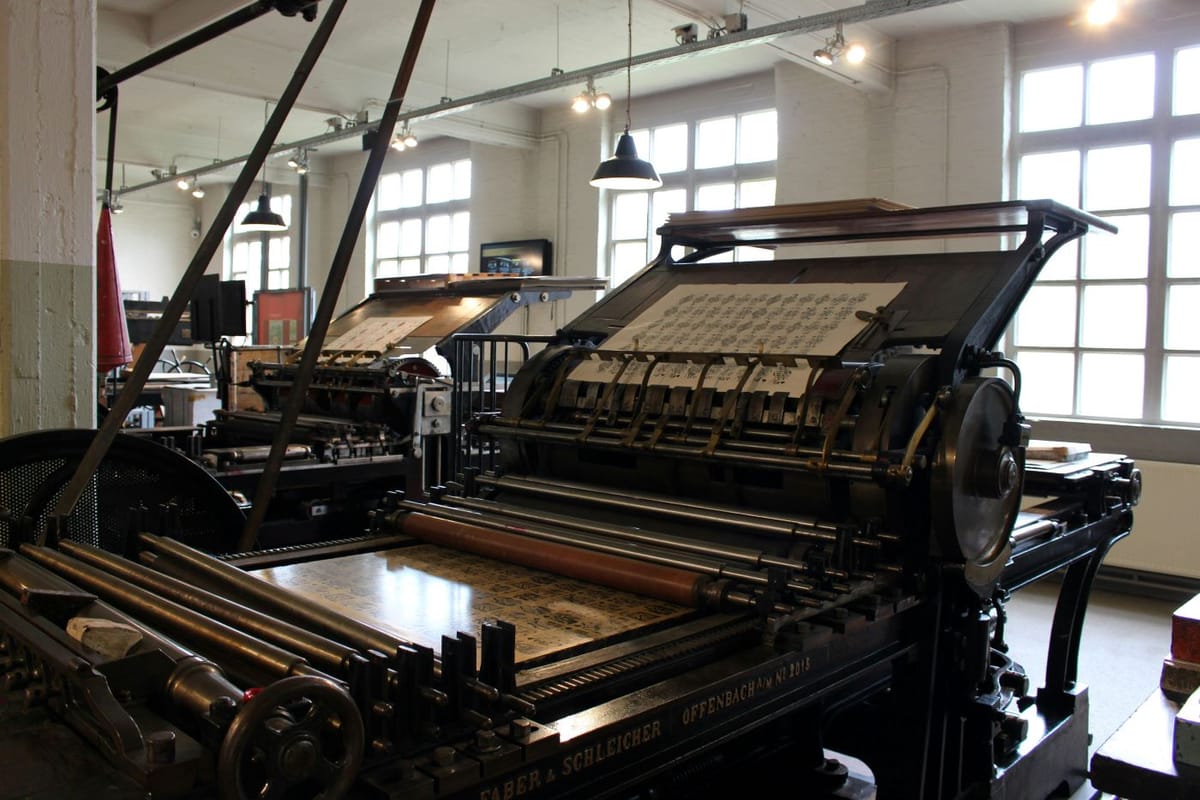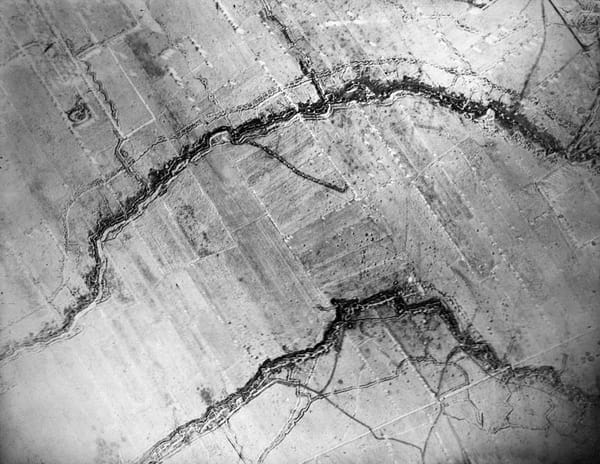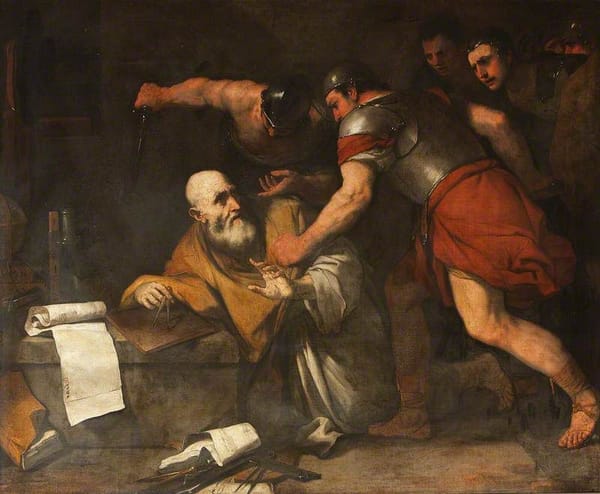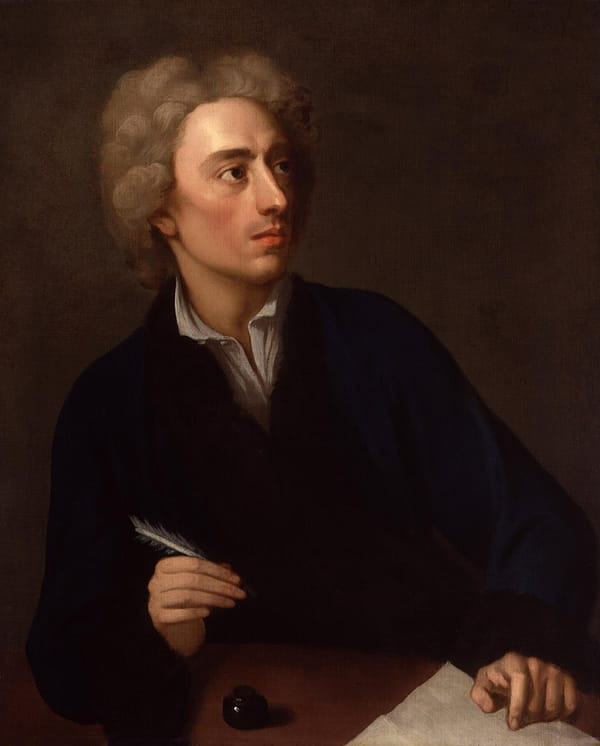Literature in the 17th Century

Metaphysical Poets
Metaphysical poets were a group of 17th century poets who wrote metaphysical or philosophical poems. Some of the most important metaphysical poets included John Donne, Abraham Cowley, and George Herbert. These poets used conceits, a special type of comparison, to combine "dissimilar images".
George Herbert was a metaphysical poet who wrote religious poems. One of his most famous poems, Easter Wings, is written in the shape of a pair of wings.
It is about how God created man, the man fell into sin, and his need for Christ's salvation. In the first stanza, the speaker talks about how man fell after he sinned, and how he can rise again because of Jesus' sacrifice and resurrection on Easter. In the second stanza, the speaker talks about himself, how he is wasting away because of sin, but when God takes care of him, "Affliction shall advance the flight in me", or it will improve him.
The poem has the rhyme scheme ABABACDCDC and uses carmen figuration or shaped verse to make a visual image of the title.
Cavalier Poets
Cavalier poets were called that because of how they treated their subjects in their poems. They used a casual, nonchalant attitude, and mostly wrote poems about commonplace things and the enjoyment of life. Cavalier poets took some inspiration from metaphysical poets like John Donne, like his conceits, but they did not write philosophical or religious poems like the metaphysical poets did.
Ben Jonson was a playwright and one of the most important Cavalier poets, in fact, this group of poets is sometimes called the Sons of Ben. He is most famous for his comedies written between 1605-1614, like Volpone, or The Fox.
In An Hymn On The Nativity Of My Savior, Jonson uses many different titles and metaphors to describe Jesus, such as the author of life and light, Son of God, the Eternal King, The Word made flesh, The Son, the price of sin, Babe, and martyr.
In On My First Son, Jonson mourns the death of his seven-year-old son. He says that his best work in life was him: "Here doth lie / Ben Jonson his best piece of poetry."
The English Civil War
In 1642, a civil war broke out in England between the Royalist and Parliamentarian factions. The royalists controlled the north and west areas of Britain, and the Parliamentarians controlled the south and east. In 1643, the Parliamentarians allied themselves with the Scottish against King Charles I. They defeated Charles in 1644 and 1645. While imprisoned, the king managed to incite a second civil war. For this, some Parliamentarian army officers and MPs charged Charles with high treason, and he was found guilty and executed in 1649. A republican regime was set up, with William Cromwell as "Lord Protector". After he died, his son Richard became the Lord Protector but resigned eight months after coming into the role. The republic soon fell apart and Charles II, the son of the previous monarch, was invited back to Britain to rule.
Restoration Literature
Restoration Literature was written in the Restoration period of English history, from the years 1660-1689. This period was named that way because the monarchy was restored after the English Civil War.
During Cromwell's reign, plays and other dramatic literature were banned by the Puritan ruling class because they were considered evil. When Charles II was restored to the throne, he unbanned these writings and supported playwrights, creating the King's Company and the Duke of York's Company.
Paradise Lost
Paradise Lost is an epic poem by John Milton.
The poem begins with the poet invoking the help of the Heavenly Muse. Some people think that this refers to the Holy Spirit, because of lines 17-18 and 21 from book 1:
"And chiefly Thou O Spirit, that dost prefer
Before all Temples th' upright heart and pure"
and
"Dove-like satst brooding on the vast Abyss"
Summary of Book 1:
In lines 27-83, the main antagonist, Satan, is introduced and the environment (Hell) in which he and his crew of rebellious angels are placed is also described.
In lines 84-127, we find out in a speech that Satan did not succeed in his rebellion and is plotting revenge and "eternal Warr" on God, who he calls a tyrant.
In lines 128-155, Satan's "nearest mate", Beelzebub, agrees with the plan that he had outlined to him in his speech.
In lines 156-191, Satan tells Beelzebub that they must strike soon and asks him to provide ideas on how they "may henceforth most offend" God.
Lines 192-241 describe Satan.
In lines 242-270, Satan talks about how this place they got is not as nice as Heaven, but he thinks it is better for him to be the ruler of Hell than a servant in Heaven.
In lines 271-282, Beelzebub tells Satan that he should awake and instill courage in the other demons in the lake of fire.
In lines 283-330, Satan awakes his followers and harangues them for sleeping.
In lines 331-621, some members of Satan's army are described, many of them are the false gods that the nations around Israel worshiped.
In lines 622-669, Satan gives a speech to his army, and he tells them about the creation of man, who "Should favour equal to the Sons of Heaven". He tells the demons that they will soon go to war, and they start "Hurling defiance toward the vault of Heav'n".
In lines 670-798, the demons build themselves a city in Hell, called Pandemonium.
Thoughts on the First Book
The first book of Paradise Lost is interesting for a couple of reasons.
Firstly, the main focus of this book is the antagonist, Satan. This is interesting because he is described as an epic hero would usually be, even though he is the antagonist. This was a novel way of writing the character, especially since Milton was Puritan and writing this for a Puritan audience.
The demons that are part of Satan's army are also introduced in a very similar manner as the roll call of Greek heroes and ships in The Iliad. Maybe Milton wanted to make a connection between these heroes and the gods they worshiped.
The struggle against odds that the epic hero usually goes through is also parodied in Paradise Lost. Whereas in a regular epic, the struggle the hero goes through is for a good end and will be accomplished successfully, Satan's struggle against God is not only evil, but is also doomed to fail. In fact, Satan already failed at the beginning of the epic, where he recounts his defeat and expulsion from Heaven, and throughout the first book, we find out that he is not the confident leader the other demons think he is:
"So spake th' Apostate Angel, though in pain
Vaunting aloud, but rackt with deep despare"
The Pilgrim's Progress
The Pilgrim's Progress was a book written by the Puritan writer John Bunyan in the 17th century. It is one of the most famous and most important allegories ever written, and has been translated into many different languages. The book is about the journey of a man named Christian and the different adventures and dangers he goes through on his way to the Celestial City - Heaven. The book is an allegory of the Christian's life.




